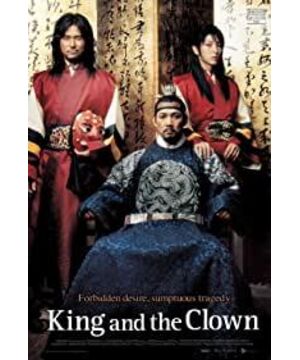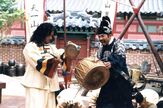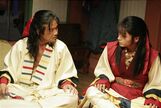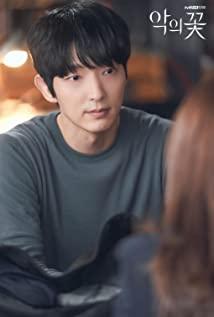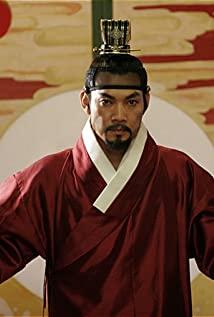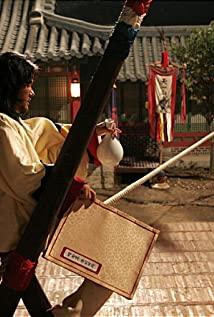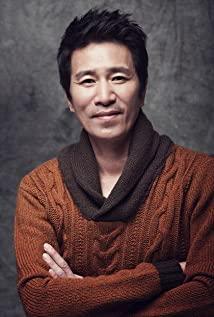Kong Ji, portrayed by Lee Jun Ki, is a simple, ignorant heart under a weak appearance. As bright as the moon in the clouds, as white as snow on the mountains. Almost pure water. It is such a picture without any color, with the passage of time, the changes of personnel are outlined and colored little by little. Happiness and joy, warm smiles, bloody cruelty, filth, and power and money. He is kind, but he succumbs to the stability of reality; he is taciturn, which does not mean that he has no desires. He is simple, but he will also be fascinated by this materialistic Hanyang, and will also indulge in the joy brought by the blue official robe.
At that time, he must not have understood it. When he was obsessed with power step by step, he would also lose his essence step by step. So in this deep palace, it becomes difficult to imagine that when I didn't enter Hanyang, I was drunk in the mountains and flowers. It's just a simple play that wants to live without being tortured by hunger, but blood is frequently splattered because of it. The price is painful.
The poignant and sad music always sounded at the right time, casting a touch of sadness on the film. It is like a whimper in the dark night, which is breath-taking and memorable. The background of the film is set in the era of the tenth king of Joseon, King Yeonsan and his concubine Lushui. The theme of the film is naturally the deep emotion between Kong Ji and Changsheng, as well as the vague erotic ambiguousness. They are the best "brothers", both willing to give up their lives for each other, and they are indispensable in each other's lives. In that dark and gloomy era, it was the rising sun in each other's hearts.
In the last few minutes of the film, the blind Changsheng staggered onto the rope and slowly rambled on the story. He said, "I am still so blind, I can't even see that his heart was stolen." The film uses a subtle The obscure rhythm tells that Changsheng's love for Kong Ji is as deep as a well.
The final picture freezes with each other jumping vigorously on the rope and throwing their bodies into the air. So what if the army invaded the palace, what if the king is sad or happy, this scene is only for them to see. At that moment their hearts were dependent on each other and free and unfounded.
Changsheng said that he still wanted to be an actor in his next life, and Kong Ji said that he would also be an actor in his next life. It's a promise, and it's concise. The simple happiness of the little people, the percussion and dancing in the spring mountains, such ordinary days, the happiness is indescribable.
View more about The King and the Clown reviews


